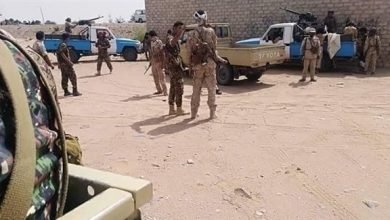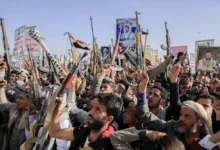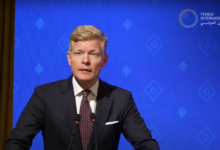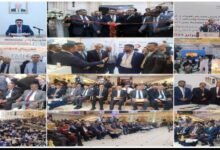US sanctions Houthis commanders, enters into talks with militia
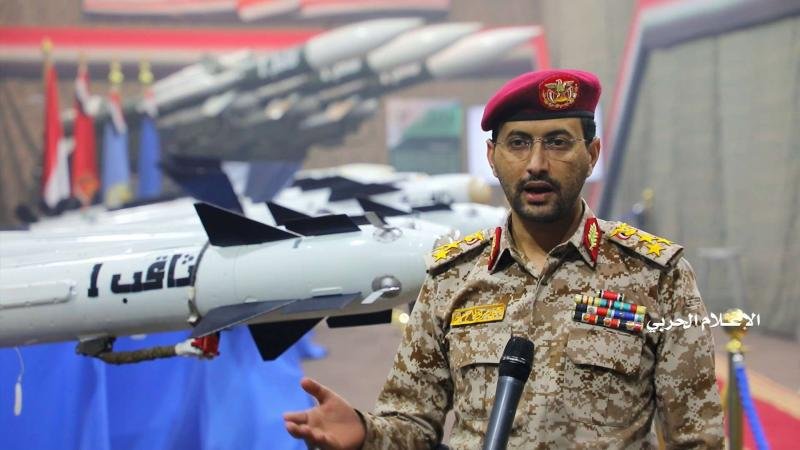
SMA NEWS – WASHINGTON
The United States on Tuesday imposed sanctions on two commanders of Yemen’s Houthi militias, blaming them for civilian deaths and denouncing their ties with Iran as Washington seeks to halt the devastating war.
The Treasury Department said it would freeze any assets of the air force and naval commanders of the Houthis, who have defied international appeals by pursuing an offensive to seize the government’s last northern stronghold.
With the militias from the impoverished nation unlikely to have US bank accounts, the effects are largely symbolic but reinforce President Joe Biden’s sharp criticism of Iran even as he opens the door to diplomacy with Tehran and distances his administration from Saudi Arabia, which has been waging a military campaign to dislodge the Houthis.
— Iran’s role condemned —
“Iran’s involvement in Yemen fans the flames of the conflict, threatening greater escalation, miscalculation and regional instability,” Secretary of State Antony Blinken said in a statement.
“Ansar Allah uses Iranian weapons, intelligence, training and support to conduct attacks threatening civilian targets and infrastructure in Yemen and Saudi Arabia,” he said, using the Houthis’ official name.
Blinken condemned the rebels’ continued offensive and said the United States would provide the Saudis “the tools they need to defend themselves.”
The Treasury Department said that the sanctioned commanders had trained in Iran and acquired weapons from the clerical state, which has religious affinities with the Houthis and a shared hostility toward Saudi Arabia.
The Houthi naval commander, Mansur al-Saadi, masterminded deadly attacks against international shipping in the Red Sea and put fishermen and other civilians at risk with naval mines, the Treasury Department said.
The air force commander, Ahmad Ali Ahsan al-Hamzi, has carried out targeted drone strikes, it said.
— Distant peace —
In one of its first acts, the Biden administration had rescinded a broader designation of the Houthis as a terrorist organisation.
Aid groups said that the label put their work at risk as they had no choice but to deal with the Houthis, who effectively are Yemen’s governing authority in much of the country, including the capital Sana’a.
However, since the reversal of that designation, the Houthis have stepped up attacks in Yemen and on Saudi Arabia, mainly with ballistic missiles and explosive-laded drones.
Former US President Donald Trump’s administration, which fiercely opposed Iran and was closely aligned with Saudi Arabia, had branded the Houthis as terrorists in its final days in office.
The United Nations has called Yemen the world’s worst humanitarian crisis and voiced disappointment after a pledging conference Monday raised $1.7 billion in aid, far below the appeal for $3.85 billion.
— Contacts with Houthis –
The news of the last sanctions against Houthi commanders coincided with reports about senior US officials reportedly holding a first direct meeting with officials from the Iran-aligned Houthi movement, two sources familiar with the matter said.
The discussions, which have not been officially made public by either side, took place in the Omani capital Muscat on February 26 between US Yemen Envoy Timothy Lenderking and the Houthis’ chief negotiator Mohammed Abdusalam, the sources said.
The Houthis captured Sana’s in 2014 and control most populated areas. A Saudi-led coalition has battled them with tacit Western support since 2015 in a war that has killed tens of thousands and created what the United Nations considers the world’s biggest humanitarian crisis.
The Saudis and Houthis have been negotiating for more than a year towards a truce, directly and under the auspices of the United Nations.
The Muscat meeting, one of the sources said, was part of a new “carrot and stick” approach by Biden.
Lenderking met Abdusalam in Muscat after meeting with Saudi and UN officials in Riyadh. He also visited the United Arab Emirates, Kuwait and Qatar during his regional tour.
The sources said Lenderking had pressed the Houthis to halt the Marib offensive and encouraged the movement to engage actively with Riyadh in virtual talks on a ceasefire.
Abdulsalam, who is also the spokesman of the Houthi movement, did not respond to media requests for comment.
A US State Department spokesperson said Lenderking has been meeting with regional senior government officials and has met with UN special envoy Martin Griffiths during his trip.
“We will not be commenting on all his engagements,” the spokesperson said.
— Ceasefire talks –
In ceasefire talks, Saudi Arabia has been seeking assurances on border security and curbing the influence of regional arch-rival Iran. The Saudi level of representation at virtual talks was recently raised, with Riyadh’s ambassador to Yemen, Mohammed al-Jaber, now speaking with Abdulsalam, the sources said.
Riyadh wants a buffer zone inside Yemen along the border. The Houthis want an end to blockades on the Red Sea port of Hodeidah and Sana’a airport.
If the agreement is reached, one of the sources said, it would be taken to UN envoy Griffiths to prepare for broader peace talks that would include Yemen’s internationally recognised, Saudi-backed government, now based in the port of Aden.
The war, stalemated for years, has shifted to the gas-producing region of Marib where hundreds of fighters have been killed in a Houthi offensive, the most deadly clashes since 2018.
On Wednesday, heavy clashes were reported around Marib and in Taiz, another heavily disputed city.




